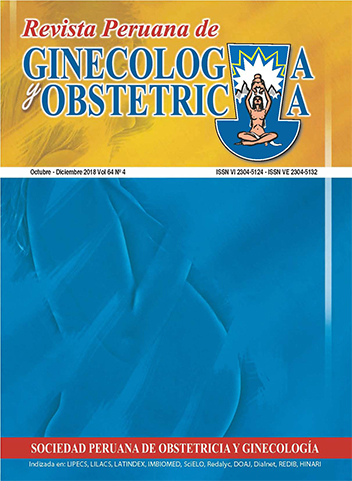Laser fetal surgery in feto-fetal transfusion syndrome and selective intrauterine fetal growth restriction
DOI:
https://doi.org/10.31403/rpgo.v64i2128Abstract
Introduction: The monochorionic biamniotic twin pregnancy (MCBA) corresponds to approximately 15% of all twin pregnancies and an estimate of 10-15% develop complications proper of these types of pregnancies, such as selective intrauterine fetal growth restriction (IUGRs) and feto-fetal transfusion syndrome (FFTS). Laser fetal surgery allows treatment of these hemodynamic alterations of MCBA by fulguration of placental anastomoses, and it is currently considered the first-choice therapy for FFTS and some IUGR cases. Objectives: To highlight the general aspects of laser fetal surgery and to describe current evidence of its efficacy and safety in FFTS and IUGRs. Methods: Review of articles published during the last five years in indexed journals from the following databases: PUBMED, MEDLINE, EMBASE and Cochrane Library. Review papers, original papers, and systemic reviews were included. Classic relevant papers on fetal surgery history were also included. Results: By means of this nonsystematic review of the literature, 43 articles were considered for the present paper. Conclusion: This review evidences that laser fetal surgery improves the prognosis of FFTS fetuses. The use of this therapy in IUGRs cases has not improved survival.Downloads
Download data is not yet available.
Downloads
Published
2018-12-11
How to Cite
Molina-Giraldo, S., & Hincapié-Porras, C. (2018). Laser fetal surgery in feto-fetal transfusion syndrome and selective intrauterine fetal growth restriction. The Peruvian Journal of Gynecology and Obstetrics, 64(4), 587–597. https://doi.org/10.31403/rpgo.v64i2128
Issue
Section
Simposio - Cirugía Fetal en América Latina
















